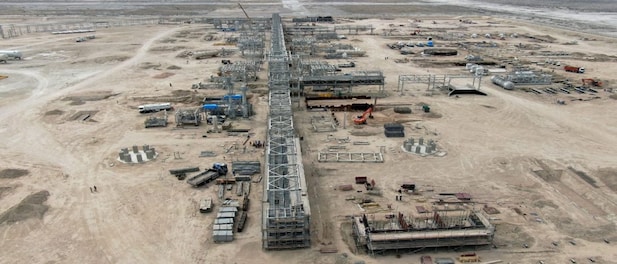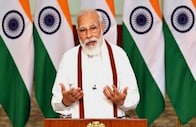After twenty years of the war, it is time for us to introspect the implications of the action taking into consideration how the Americans conducted the war. Are their killing of thousands of innocent civilians as collateral damage, inhuman torture and humiliation at Abu Ghraib jail, destruction of Fallujah city where children are born till to day with deformity because of their use of toxic bombs to capture the Sunni stronghold, could be justified? --writes Amb. Soumen Ray, a former Indian Ambassador and High Commissioner to the Gulf, West Asia, and Eastern & Southern African countries.
Americans are very fond of celebrating their past glorious events by organising countrywide parades, issuing commemorative postal stamps, organising seminars and symposiums highlighting America’s greatness. Even the heinous acts of 9/11 are mourned every year in a sombre way. But it was in the month of March, 2003, twenty years ago, the US launched its now famous “shock and awe” campaign in Iraq and achieved its goal within just over a month, dethroning the world’s most dreaded tyrant. But the Americans and Brits, leaders of the campaign, are silent today. It’s the war no one wants to remember.
Even before the bombardment on Iraq started, the US bombarded the ‘international community’ with xenophobic jargons and phrases like “WMD,” “the axis of evil,” “regime change,” “yellowcake uranium,” “the coalition of the willing,” do not want “the smoking gun to be a mushroom cloud” and the like. That after the removal of Saddam, wind of democracy and liberalism would blow over entire Middle East.
Also Read: United Nations special envoy warns political leaders that Iraq's 'streets are about to boil over'
Yes, Saddam Hussein was a brutal, tyrannical, totalitarian and murderous dictator. There is no doubt about these traits of his character. Having served in Iraq on my diplomatic assignment for a total period of seven years, in the early 1980s and in late 1990s, I have personally witnessed some of his brutal actions (details of those are narrated in a book I am currently working on).
Throughout the centuries, this new country, which was carved out of the Ottoman Empire after the First World War, was a difficult place to govern. In the north, the fiercely independent-minded Kurds live; the western and central regions are inhabited by the Sunni Muslims. In southern Iraq, there is another sect of Islam, Shi’ite Muslims, who never want to be governed by the minority Sunnis. Only once in the history of the country, all of them united in 1920 to oppose the British mandate over them. Their failure regenerated their separate identities.
Regardless of all the violent traits of character in him, one has to agree that Saddam was the most transformative, nationalistic and effective ruler of Iraq. All the three regions of Iraq were under his firm grip (though using questionable means). Saddam was Vice President of Iraq for a decade when its economy was based on agriculture. The country’s national revenue came only from a paltry sum given by the multinational monopolised oil conglomerate NPC in lieu of exploring, extracting and exporting Iraqi oil.
Before he became President in 1979, Iraqi National Oil Company was established after nationalising the NPC. There were oil refineries (10 of them), cement, building materials, food processing, textile and leather factories and a huge petroleum-chemical complex. Along with this Saddam built modern cities and towns with all civic facilities, including five star hotels in main cities, along with self sufficiency in agro-products, vast road and rail networks.
Percolation of national wealth down to the lowest strata of the people was made possible at that time and Saddam made Iraq a country providing social services for the citizens which was unprecedented among Middle Eastern countries then. Iraq was a model country. And, the full credit must be given to one person - Saddam Hussein. Having said that, under no circumstances his removal of all rivals and opponents by violent means could ever be condoned.
In the same breath, starving to death thousands of Iraqis by imposing back-breaking sanctions, when there was absolutely no justification of its continuation after all WMDs were destroyed and recorded by the UN weapon Inspectors, could be justified. Moreover, after the Gulf war, Saddam’s political power was drastically diminished. Governors and army generals were practically running the show. The elite Republican Guards brigades and a few loyal senior military officials were his strength.
Under the circumstances, Iraq was invaded for a change of regime on the basis of “very reliable intelligence” that Saddam had a large stockpile of WMDs. In fact, those intelligence inputs were given to the CIA by the exiles, most particularly by Ahmad Chalabi, an Iraqi opposition leader who dreamed of ousting Saddam and taking the reins of power in Iraq. Chelabi, a rich Shi’ia leader thrown out of Iraq took refuge in Jordan. He embezzled a huge sum of money from a bank he was working with, fled Amman and reached the USA. There he cultivated close ties with prominent journalists in Washington , the US law makers and the neoconservative advisors of President Bush, who shaped his foreign policy.
Armed with this information and in accordance with Bush’s war on terror, presidential advisors “established” close links between Saddam and al-Qaida. An absurd allegation. While Saddam was the only secular politician in the Middle East, Osama bin Laden vowed to oust all non-conformists. This is a big contradiction. In fact, Saddam banned the Muslim Brotherhood, and Osama was a member of this pan-Arab organisation. Saddam is known to have killed many of them in Iraq.
In 2008, the Center for Public Integrity compiled hundreds of lies told by Bush and his top officials including the Statement by former Secretary of State late Colin Powell in the UN, as part of a campaign aimed at persuading the American public to support the invasion “under decidedly false pretences.” They succeeded. But the invasion was not approved by the UN Security Council, as three permanent members of the Council opposed the attack. France, China and Russia opposed that course of action, and, in September 2004, the UN Secretary General categorically said that; “It was not in conformity with the UN Charter…….it was illegal.”
And what resulted thereafter?
With the loss of hundred of thousands of their fellow nationals and thousands of invading/liberating soldiers, present-day Iraq is in shambles. Muslims of different sects, who once lived harmoniously together in cities and towns, now live in separate quarters. The US mission to establish liberal democracy in Iraq, a country which never tasted democracy in the memorable past centuries, proved illusory.
Iraq has been consumed by years of political crisis and its parliamentary system has been paralysed. It now takes several months for the elected members of parliament to form a government. The ethno-sectarian political system unintentionally provides for hard bargainings, not only among the different sects of Muslims but intra-sectarian political rivalries are also displayed in full play.
Civic amenities provided by the government, which were taken for granted by the Iraqis, are hard to get these days. Acute shortage of electricity (all the villages in Iraq had electricity 24/7), fresh drinking water (sometimes the supply comes for a particular period every day for different areas) is a scarce commodity. In many places, sewage overflows cause terrible odour on the roads, and the list goes on. And then corruption, which is rampant in every sphere of Iraqi life. A huge number of educated youths are unemployed. And they are angry.
Also Read: 7 most drought-prone countries in the world where people are facing acute food insecurity
It all started in 2011-12, picked up wind in 2015 and since the Tishreen protests (October 2019 to January 2021), political protests chocking political system and civic lives have become the norm of Iraqi political culture. Demands of the demonstrators vary. Some demand government jobs, others demand development of their dilapidated areas, even devaluation of their local currency, gender violence, arrest of their political leaders - any grievance against government bring the protesters out on the streets. During the recent past, disgruntled politicians have also joined the fray. They organise political rallies as a show of strength.
This is not the Iraq the international community wanted to see after removal of the tyrannical dictator of the country. The neoconservatives of Washington surely did not have any concrete plan to reconstruct the country after their “Mission Complete”-- removal of Saddam. American soldiers were not greeted by the Iraqis as “liberators” as expected by Dick Cheney. The US insistence that regime change would bring greater stability in the Middle East is a distant mirage. Complete disenfranchisement of the Sunnis in general and the Ba’athists in particular, gave rise to terrorism on an unimaginable scale - rise of Islamic state, causing havoc around the globe.
After twenty years of the war, it is time for us to introspect the implications of the action taking into consideration how the Americans conducted the war. Are their killing of thousands of innocent civilians as collateral damage, inhuman torture and humiliation at Abu Ghraib jail, destruction of Fallujah city where children are born till to day with deformity because of their use of toxic bombs to capture the Sunni stronghold, could be justified?
In may 2022 former President Bush said in a speech at the Bush Presidential Center in Dallas “The decision of one man to launch a wholly unjustified and brutal invasion of Iraq …..”. Of course he excused himself saying from a septuagenarian, some slip of the tongue was natural. In place of Iraq, it should be Ukraine. For his captive audience it was a Freudian slip. However, this could also be construed as the voice of his inner conscience, which he never acknowledged publicly.
That said, we know how the Iraqis suffered under the Ottoman rule, during the British mandate period, under the puppet king and thereafter under Saddam’s tyranny and the terrible turbulence after the invasion. They are now picking up threads to build a new Iraq almost from rubbles. It is the moral duty for all countries to extend helping hands to them. They need it badly.
—The author, Amb. Soumen Ray IFS(Retd), is a former Indian Ambassador and High Commissioner, served extensively in the Gulf, West Asia, and Eastern & Southern African countries. The views expressed are personal.
(Edited by : C H Unnikrishnan)
First Published: Apr 19, 2023 1:12 PM IST
Check out our in-depth Market Coverage, Business News & get real-time Stock Market Updates on CNBC-TV18. Also, Watch our channels CNBC-TV18, CNBC Awaaz and CNBC Bajar Live on-the-go!







